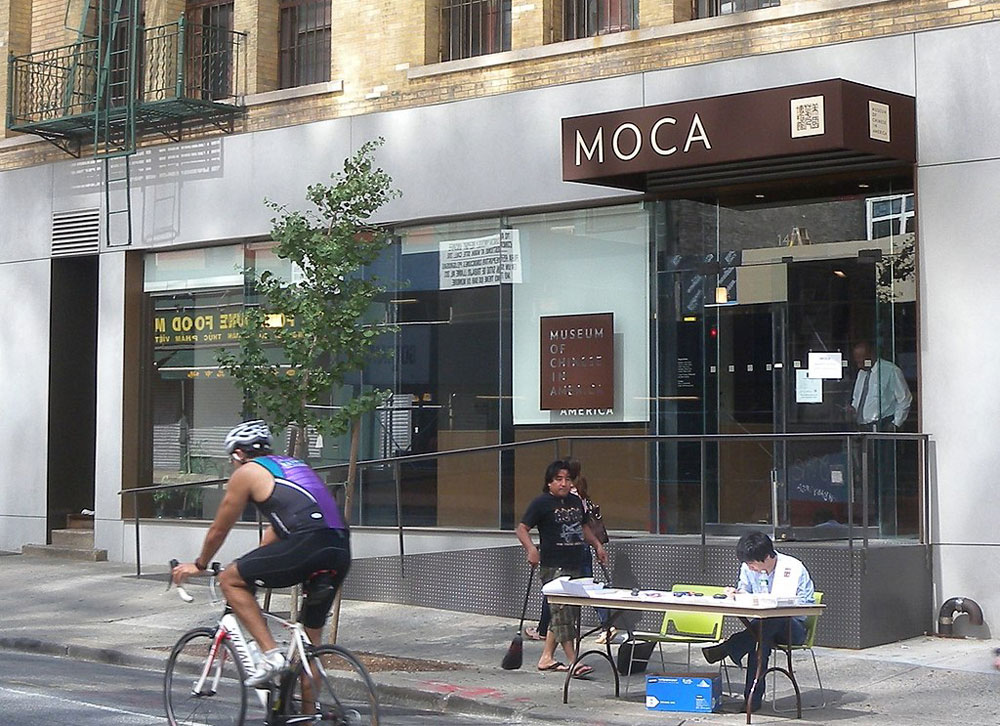
January 27, 2020; Hyperallergic
On the night of January 24th, the archives of the Museum of Chinese in America (MOCA) at its Research and Collections Center at 70 Mulberry Street were devastated by a five-alarm fire that raged through New York City’s Chinatown. Ten people were injured in the fire. Nine were firefighters, and one was an elderly person with mobility challenges, who was rescued using a tower ladder.
The building, erected in the 19th century, originally housed Public School 23, which educated generations of immigrants and is considered a cultural landmark. In addition to the museum archive, the building at the time of the fire housed a senior center, the Chen Dance Center, and other community groups. The city, which owns the 70 Mulberry Street building, has made temporary space available for displaced tenants.
Starting on the building’s fourth floor, the fire raced through the fifth floor to the roof. The ceiling collapsed, leaving little hope for the items inside—photos, memorabilia, oral histories, artwork, textiles, family albums, films, musical instruments, and traditional Chinese dress, among other objects and documents that told diverse stories about Chinese Americans. All told, the archive housed 85,000 items.
“There were so many collections that were donated by families,” museum president Nancy Yao Maasbach tells Hakim Bishara of Hyperallergic. “It’s a multidimensional and diverse collection of precious Chinese-American items, and the most professionally organized in the country.”
Ava Chin, a writer and teacher at the City University of New York College of Staten Island, credits MOCA for preserving the history of a community often ignored by larger organizations. “Let me tell you what we lost: The ticket for our family’s passage to America, from 1914, my grandfather’s oral history, my great-grandfather’s ID papers,” Chin told the New York Times.
Sign up for our free newsletters
Subscribe to NPQ's newsletters to have our top stories delivered directly to your inbox.
By signing up, you agree to our privacy policy and terms of use, and to receive messages from NPQ and our partners.
After an anxious wait, recovery efforts have begun, and advocates are optimistic. Of the 200 boxes or so recovered, some are in good condition and only need repackaging. To date, the museum reports that 80 percent of the items they have reviewed so far appear to be salvageable.
“We’re only a small cultural institution. We have no endowment, no savings account,” Maasbach says. This reality is shared by many small nonprofits that face hard decisions about the fate of their organizations and the work they do when disaster strikes.
Another piece of good news is that a sizable portion of the archive had been previously digitized. According to their website, MOCA has recovered backups of 35,000 objects digitized from their collection. To assist with the museum’s recovery efforts, Mayor Bill de Blasio announced that New York City had secured temporary locations for the damaged collection and is coordinating to provide assistance with recovering items. Meanwhile, MOCA has set up a fundraising page that has raised over $117,000 in its first eight days. Emergency conservators and volunteers from across the country have offered their services.
MOCA’s exhibit space, housed in a different building, is operating normally.
Four other nonprofits that serve the Chinatown community with offices in the building also suffered damaged in the fire. The cause of the fire remains unknown.—Julie Euber












